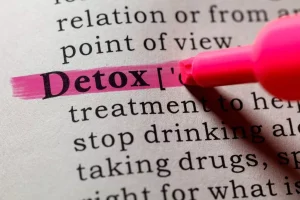
Your healthcare team is there to support you in making decisions that are right for you. They can help by discussing your situation with you and answering your questions. Since 1938, we’ve built a successful legacy to support every pregnant person and every family. If you have difficulty stopping drinking, talk to a midwife, doctor or pharmacist. It may not be as difficult as you think to avoid alcohol completely during pregnancy. The CDC advises that there is no safe amount of alcohol during pregnancy and that individuals need to avoid it altogether.
- The sooner you get help, the better life will be for you and your baby.
- It’s also difficult to predict the impact of drinking on any given pregnancy because some women have higher levels of the enzyme that breaks down alcohol.
Alcohol and Pregnancy: Is ‘A Little Bit’ Safe?
Almost all national health organizations recommend complete abstinence when it comes to drinking during pregnancy, while some obstetricians – including myself – say it’s OK to have a drink now and then. If you are pregnant or trying to get pregnant and cannot stop drinking, get help! Contact your healthcare provider, local Alcoholics Anonymous, or local alcohol treatment center. Alcohol can cause problems for the baby throughout pregnancy, including before a person knows they are pregnant. Alcohol use in the first 3 months of pregnancy can cause the baby to have abnormal facial features. Growth and central nervous system problems (for example, low birthweight, behavioral problems) can occur from alcohol use anytime during pregnancy.
Alcohol and Women

Drinking heavily during pregnancy can cause fetal alcohol spectrum disorder (FASD) or fetal alcohol syndrome (FAS). If you are pregnant, or thinking about becoming pregnant, and find that it is impossible to stop drinking, talk with your doctor who can help. It is important to get treatment to stop drinking as soon as possible. There are programs available to help pregnant women stop drinking (for example, “12-step program” of Alcoholics Anonymous) can provide support to quit drinking. Whatever the risks, many moms-to-be are choosing not to totally give up alcohol. A recent CDC study found that about one in eight pregnant women in the U.S. report drinking at least one alcoholic beverage in the past month.

Support for you
The Psychiatric Consultation Service at Massachusetts General Hospital (MGH) sees medical and surgical inpatients with comorbid psychiatric symptoms and conditions. Such consultations require the integration of medical and psychiatric knowledge. During their thrice-weekly rounds, Dr. Stern and other members of the Psychiatric Consultation Service discuss the diagnosis and management of conditions confronted. These discussions have given rise to rounds reports that will prove useful for clinicians practicing at the interface of medicine and psychiatry. While FASD is less severe than FAS, children with alcohol during pregnancy FASD can have learning difficulties, problems with behaviour, physical disability, and emotional and psychiatric problems that last a lifetime.

It is conducted by the Substance Abuse and Mental Health Services Administration. This telephone survey tracks national and state-specific health risk behaviors of adults, aged 18 years and older, in the United States. The BRFSS is administered and supported by the National Center for Chronic Disease Prevention and Health Promotion, CDC. The following are answers to common questions about alcohol and pregnancy. Additionally, children with FAS may often have trouble mixing socially in school or similar settings.
What to avoid during pregnancy
- Access barriers—including lack of transportation, treatment options being unavailable or programs being too full, or lack of knowledge of where to seek treatment—and stigma were next most common.
- Some pregnant women tell me they feel judged when they have a drink.
- Whatever the risks, many moms-to-be are choosing not to totally give up alcohol.
- Access barriers and stigma were more frequently cited by pregnant and parenting women.
- When you drink alcohol during pregnancy, the alcohol enters your blood and quickly passes to your baby through the placenta and the umbilical cord.
If you’re pregnant, trying to get pregnant or think you may be pregnant, do not drink alcohol. When you avoid alcohol, you remove the risk of FASDs or any other health problems directly caused by drinking alcohol. If it is hard for you to stop drinking, talk with your healthcare provider about getting help. Options for pregnant women include behavioral treatments and mutual-support groups. Your healthcare provider may be able to help you determine the best option for you. I also use this opportunity to discuss how much they normally drink and to educate them about the risks of drinking during pregnancy.
It is unsafe for people to consume any amount of alcohol during pregnancy. Binge drinking poses an increased risk to the developing fetus. However, studies also indicate that chronic drinking also poses a serious risk. Alcohol exposure before birth may harm =https://ecosoberhouse.com/ one child more than another.
- While FASD is less severe than FAS, children with FASD can have learning difficulties, problems with behaviour, physical disability, and emotional and psychiatric problems that last a lifetime.
- About half of all pregnant women in Bradford don’t drink alcohol at all; these are the women of Pakistani origin.
- Examples include juniper berry, devil’s claw, ginseng, and aloe vera.
- Noticing the gap in research on recent trends in alcohol misuse and treatment among U.S. women, she decided to conduct such a study.
Drinking while pregnant: What we know and what we don’t
Some pregnant people, particularly those with a higher risk of preterm labor or other complications, may need to restrict additional activities that this article does not list. If a doctor gives the green light, a pregnant person should aim to engage in moderate exercise for at least minutes a day on most days of the week. ACOG also recommends Oxford House that pregnant people avoid contact sports such as football or boxing. It is common for pregnant people to avoid certain foods during pregnancy, either due to a change in their sense of smell or because the food makes them feel ill. Your midwife will offer you information and support on how to cut down or stop drinking alcohol. The information here aims to help you better understand your health and your options for treatment and care.




